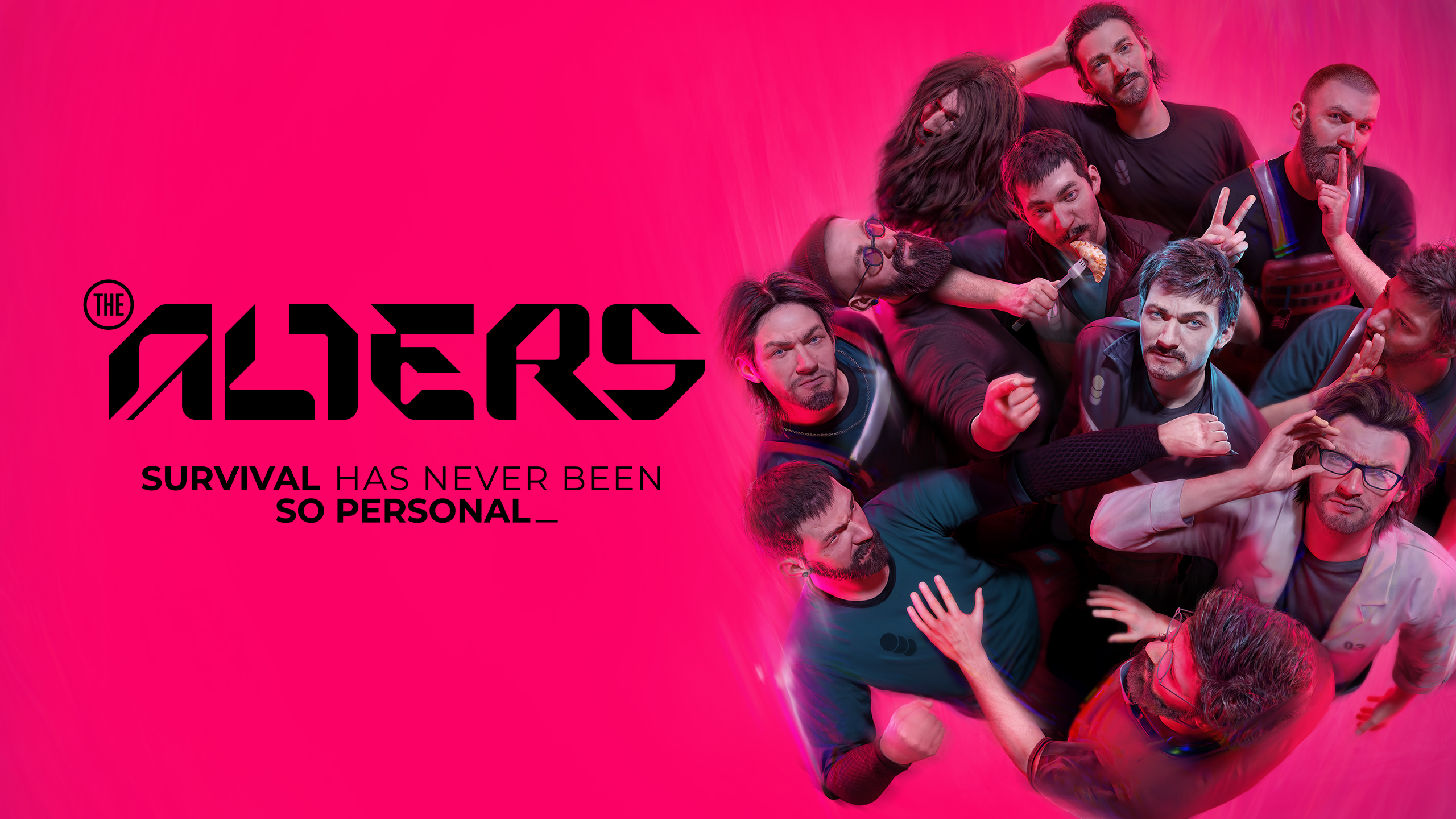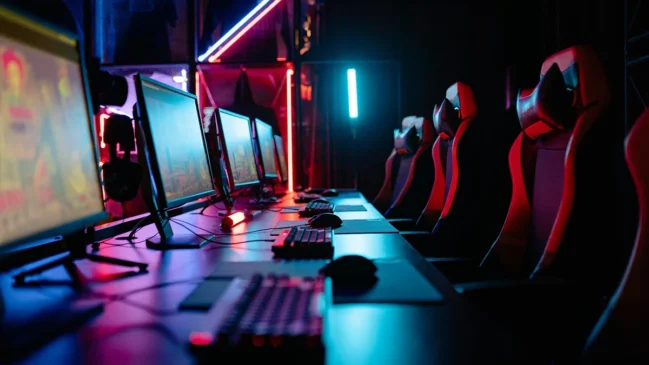
In an industry flooded with familiar tropes and formulaic storytelling, The Alters dares to ask: “What if every version of you made a different choice?” Developed by 11 bit studios, known for This War of Mine and Frostpunk, Alters blends hard science fiction with emotional introspection, creating a survival narrative that’s as cerebral as it is personal. Set on a hostile alien planet, the game’s core hook revolves around creating “alters” — alternative versions of the protagonist, Jan Dolski — each shaped by different life decisions and professional paths. What begins as a desperate bid for survival soon spirals into a psychological journey of identity, regret, and what it means to live with our choices.
With its minimalist UI, striking art direction, and a heavy narrative focus, Alters isn’t your typical sci-fi survival game. Instead, it’s a quiet, haunting meditation on the self — wrapped in the tension of time-sensitive resource management and existential dread. It’s a game that makes you question not just how you play, but who you would become if things had gone another way.
AT A GLANCE
- Developer: 11 bit studios
- Publisher: 11 bit studios
- Genre: Narrative-driven survival, Action Adventure
- Release Date: July 2025
STORY
At its heart, The Alters tells the story of Jan Dolski, a lone worker stranded on a radiation-soaked planet after a mining expedition goes horribly wrong. With only days before the sun’s deadly radiation reaches him, Jan discovers a way to survive — not by cloning himself, but by creating alternate versions of himself, each diverging from a different choice in his past. One might have stayed in engineering school. Another may have pursued medicine. A third might have followed his dream of becoming a chef. These “alters” aren’t mindless copies; they are distinct individuals with their own personalities, emotions, and doubts — and they remember the paths Jan didn’t choose.
As Jan brings each alter to life inside his mobile base, what unfolds is not just a race against time, but an exploration of fractured identity. The narrative moves beyond survival mechanics to probe deeper questions: What defines who we are? Can we trust the parts of ourselves we’ve left behind? And when conflict arises between these alters, who gets to lead?

The storytelling is delivered through intimate dialogue, branching decisions, and internal monologues that feel more like therapy sessions than traditional exposition. The emotional stakes climb as you learn more about Jan’s regrets, lost relationships, and the personal failures that haunt him. It’s a slow burn, but one that pays off with powerful moments of self-confrontation and rare emotional weight — something few survival games attempt, let alone achieve.
GAMEPLAY
The Alters may present itself as a survival game, but underneath its tense atmosphere and countdown-to-death premise lies a layered systems management experience rooted in personal psychology. You control Jan from a third-person perspective, navigating a massive, mobile base that serves as both shelter and workshop. The core loop revolves around gathering resources, maintaining power systems, building modules, and — most crucially — creating and managing your “alters.”
Each alter represents a different life path Jan could have taken, and each comes with a unique skillset that directly influences gameplay. A Biologist can synthesize medicine to heal injuries and prevent fatigue; an Engineer can maintain the base’s systems more efficiently; a Cook ensures better nutrition and boosts morale. But you’re not just managing skills — you’re managing egos. Alters don’t always get along. They question your decisions. They demand recognition. Sometimes, they outright refuse to cooperate if their emotional state deteriorates.
That emotional system is central to gameplay. You’ll need to monitor each alter’s psychological well-being — through dialogue, choices, and rest — or risk them becoming unstable or unproductive. Conflicts between alters can spiral if ignored, impacting critical operations like base mobility or fabrication. There’s a balance to strike between delegation and diplomacy, making even mundane decisions feel weighted.
Time is your most precious resource. The radiation storm approaches constantly, and every action — building modules, repairing damage, synthesizing fuel — consumes time. There’s a constant sense of urgency, forcing you to prioritize and sometimes make uncomfortable decisions about which alter to create next, or whether to let one go. The mobile base itself can be expanded and customized, but it’s a slow, deliberate process, and space is limited — a clever metaphor for Jan’s fractured identity.
While not combat-driven, The Alters keeps you tense through logistics and consequences. The interplay between survival mechanics and character-driven management results in gameplay that’s both cerebral and emotional. It demands you think not only like a strategist, but also like someone managing a team of selves — each a reminder of who Jan could have been, and what he’s lost.
VISUALS AND AUDIO
The Alters delivers a visual and auditory experience that matches its introspective tone — restrained, deliberate, and quietly stunning. The game’s aesthetic blends cold industrial sci-fi with touches of stark surrealism, creating an environment that feels both grounded and emotionally charged. The mobile base, your primary setting, is a maze of metallic corridors, humming generators, and flickering control panels. But it’s not lifeless — each room is carefully designed, with subtle lighting cues and environmental storytelling that reflect the mental state of its inhabitants. The game makes clever use of color: warm glows in the kitchen hint at fleeting comfort, while dim, sterile med-bays evoke isolation and detachment.



Character models, especially the alters, are rendered with impressive detail. While they all share Jan’s face, their posture, expressions, and attire shift depending on their chosen path in life — a small but powerful visual cue that reinforces their individuality. You can tell who followed a path of discipline and who bears the weight of regret just by looking at them. These nuances help sell the emotional weight of your interactions, making each conversation feel more real and consequential.
The game’s sound design is equally meticulous. From the low rumble of the base’s engines to the soft clink of tools in the workshop, every ambient sound is tuned to immerse you deeper into Jan’s solitary world. There’s a constant sense of mechanical life around you — quiet, but never silent.
The soundtrack, composed with minimalistic piano, ambient synths, and melancholic tones, knows when to step forward and when to recede. It swells during key emotional moments and fades to nothing during periods of introspection, letting the silence do the heavy lifting. Voice acting deserves special mention — Jan and his alters are fully voiced, and each alter’s delivery subtly reflects their life’s journey. The performances are subdued but powerful, grounding the game’s sci-fi premise in deeply human emotion.
Together, the visuals and audio create a mood that lingers — a blend of solitude, pressure, and introspection that turns The Alters from a survival game into a deeply atmospheric experience.
Final Thoughts
Summary
The Alters is not a traditional survival game. It's something far more daring a deeply human exploration of identity, regret, and second chances, all wrapped in a tense sci-fi framework. Where other games ask you to build, conquer, or escape, The Alters asks you to reflect. It dares to slow down and let you sit with uncomfortable questions: Who would you be if you had made a different choice? Would you like that person? Could you live with them? Its gameplay balances time-sensitive management with emotional weight, forcing you to juggle logistics and psychology in equal measure. It's not always an easy game, and not everyone will be drawn to its deliberately slow pace or meditative tone. But for those willing to invest in its quiet intensity, The Alters offers a rare, rewarding experience one that lingers long after the credits roll. This isn't just a game about survival it's about self-confrontation. And in that, The Alters stands apart.




